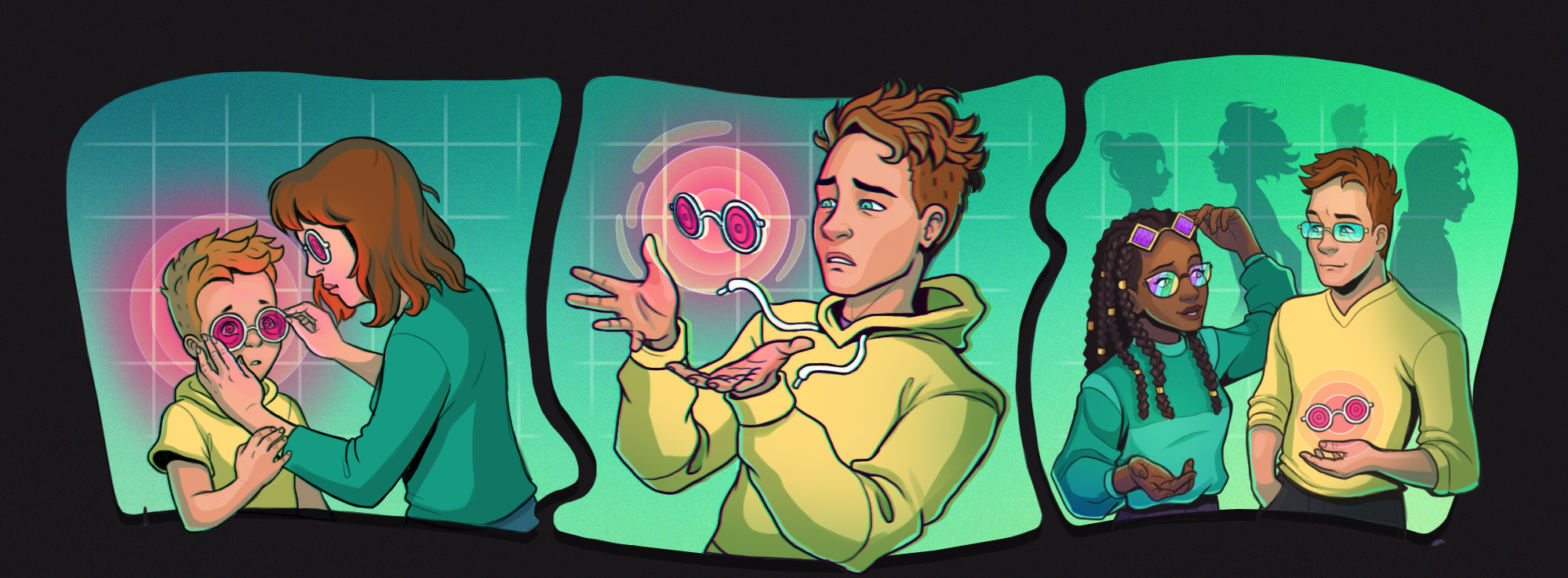How To Build Self-Awareness
One of the most powerful ways to build agency is to have "almost too much self-belief." But this can go badly quickly: look at how SBF and Elizabeth Holmes built reality distortion fields around themselves, defrauded everyone, and ended up in jail.
Some reality distortion is good—we want to change the status quo. But too much is bad.
Should we just stop believing in ourselves? No! Instead, build "almost too much" self-awareness. How can we do this?
First, what does it mean to be self-aware? Being self-aware is being mature. Being mature is being a developed adult. Psychologists call this "adult self-development."
Robert Kegan has a framework for adult self-development, which has five stages. (You can mostly ignore stages 1 and 2.)
- Stage 1 — Impulsive mind (early childhood). You're developing your senses.
- Stage 2 — Imperial mind (adolescence, 6% of adult population). You understand your senses but not yet your needs.
- Stage 3 — Socialized mind (58% of the adult population). You know what you need but are still searching for external validation from social groups.
- Stage 4 — Self-Authoring mind (35% of the adult population). You no longer need social validation and are starting to build a clear sense of identity.
- Stage 5 — Self-Transforming mind (1% of the adult population). You are on a life-long journey of balancing your many identities & your social groups.
It looks like this:

The goal, of course, is to reach stage 5. It should feel something like this:
- You're socialized in childhood (Stage 3)
- You understand that was just a lens, developing your own identity (Stage 4)
- You then integrate both: holding your childhood lens along with new identities (Stage 5)

The result could be called Coherent Pluralism. You hold many lenses (pluralism) but integrate them into a whole (coherence).

Here's a self-assessment you can take to understand which stage you're at.
What are some specific tactics to move up to Stage 5? There are two big pieces:
- Decouple yourself from stage 3: Become aware of your childhood & your socialized ways of thinking & being.
- Couples yourself to stage 4: Become aware of your identity separate from your childhood.
For #1:
To become aware of your natural way of being (to move from stage 3 socialization to stage 4 identity), I recommend a few things:
- Go to therapy. Therapy is understanding childhood moments, then decoupling yourself from them. What you perceive as your own thoughts are mostly your parents' words, incepted and masked as your own.
- Train your awareness. Instead of being your thoughts, see them.
- Meditation is the best for this. Use a meditation app to learn basic meditation skills like "noting". Make it a 10-minute daily habit for at least a month.
- CBT is good too. Become aware of your thought distortions.
- Psychedelics can help but are possibly more dangerous. Before you do them, read How to Change Your Mind and make sure you have a safe set and setting.
- Internal Family Systems (IFS) is a good frame to recognize the different parts within yourself.
- Do a 360 life review. Ask a few friends & family to give you explicit feedback. (See my 360 form here.)
- In addition to socialization (by your parents), we've all been institutionalized (by school, laws, and society). If you grew up in the West, you're likely WEIRD and are more individualistic and analytic. Read this summary of The WEIRDest People in the World to understand the different psychologies of East and West.
To decouple yourself from your socialization, you need to see the water you swim in. See it as an idea maze. You'll know you've made progress when you have texture on how you were built.
For #2:
As you become aware of your social environment and how you were built (stage 3), begin to develop your own identity outside that (stage 4). Here's how:
- Start by taking the most scientifically-backed personality test, the Big 5. Test here.
- Use it as a seed to create your own How To Work With Me Manual. Mine is here. Here's the template.
- To understand other personality tests, read What’s going on here, with this human? Take the ones that resonate and use them to construct a sense of self.
- Use I am statements to construct your identity, and become aware of your superpower-shadow dynamics.
- Travel. Be independent. Be alone. Be ok with being alone. At first it's scary to be by yourself but then it's empowering.
- Be yourself. Go against the crowd. Know what things people would find weird, then do them anyway. It's fine.
To be proud of your self & identity, you'll need to take in constructive feedback. Here's how:
- No one is built perfectly. We're all messed up. It's your job to integrate those sides of you into a more pro-social person.
- Become world-class at searching for feedback and accepting it. Always ask people "how was that for you?"
- Treat feedback as a gift. Don't see it as an antagonistic act from another person, but rather with you two as partners trying to improve some aspect of your behavior.
- Decouple yourself from your behavior. Just because you did something bad doesn't mean you are bad. Treat yourself as clay, ready to be molded. All feedback is hard to hear.
- Try not to be defensive. Instead, breathe, feel your body, own your negative emotions (annoyance, sadness, surprise), then look to be curious about the feedback.
- Know that most of your shadows are also your superpowers.
You'll know you've developed a strong sense of identity when you aren't affected by peer pressure, when you feel comfortable alone in foreign places, when you can share what you're most ashamed of, and when you have both a healthy distance & a healthy closeness with your parents.
Finally, you begin the lifelong process of entering Stage 5.
Stage 3 was about embracing your social scene. Stage 4 was about rejecting childhood as you embrace your identity. Stage 5 is being in a fluid relationship to your childhood & identities. From my experience, it mostly comes by:
- Embracing your superpowers and shadows
- Valuing your parents & childhood friends as much as you value your present & future self.
- Learning How To Think in Systems so you can deftly move between perspectives.
- Pilling yourself into different worldviews, then understanding that life is just one long Grey Pill.
Finally, a reminder that self-awareness isn't the final goal. You want to have lots of self-awareness and lots of self-belief.
I like to think of this as being a Level 5 Leader (a different framework). Level 5 leaders balance personal humility with professional will. They manifest their vision in the world, all while repping others and taking a beginner's mind.
Deep self-awareness is yet another 10-year overnight success. Start building your awareness muscles today.